2003 by John C. Maxwell
All rights reserved.
Scriptures noted NKJV are taken from the NEW KING JAMES VERSION. Copyright 1979, 1980, 1982, Thomas Nelson, Inc., Publishers.
Scriptures noted NIV are taken from the HOLY BIBLE: NEW INTERNATIONAL VERSION . Copyright 1973, 1978, 1984 by International Bible Society. Used by permission of Zondervan Publishing House. All rights reserved.
Scriptures noted NASB are taken from the New American Standard Bible , Copyright 1960, 1962, 1963, 1968, 1972, 1975, 1977, 1995 by The Lockman Foundation. Used by permission.
Scriptures noted The Message are taken from The Message: The New Testament in Contemporary English. Copyright 1993 by Eugene H. Peterson.
 A Division of AOL Time Warner Book Group
A Division of AOL Time Warner Book Group
The Warner Books name and logo are trademarks of Hachette Book Group, Inc.
First eBook Edition: October 2007
ISBN: 978-0-446-53560-1
This book is dedicated to you for your commitment to making ethical decisions and living an ethical life. Doing the right thing may not always be easybut it is always right.
Id like to say thank you to:
Charlie Wetzel, my writer;
Kathie Wheat, my researcher;
Stephanie Wetzel, who proofs and edits each chapter;
and Linda Eggers, my assistant.
Several months ago I went to dinner in New York with Laurence J. Kirshbaum, the chairman and CEO of the AOL Time Warner Book Group. As we chatted, at one point in the conversation he looked at me and said, You know, John, I think youwould be the perfect person to do this: What would you think about writing a book on business ethics?
Theres no such thing, I answered.
What? He looked a little surprised by my remark. What do you mean? he asked.
Theres no such thing as business ethicstheres only ethics. People try to use one set of ethics for their professional life, another for their spiritual life, and still another at home with their family. That gets them into trouble. Ethics is ethics. If you desire to be ethical, you live it by one standard across the board.
Educators, philosophers, theologians, and lawyers have taken what really is a simple matter and made it very confusing. Living an ethical life may not always be easy, but it need not be complicated. If you are reading these words, I believe you possess the desire to live and work ethically. This books goal is to help you find the way to do just that and also achieve greater success.
Whatever Happened to Business Ethics?
O N N OVEMBER 8, 2001, PEOPLE WERE SHOCKED WHEN one of the hottest companies of the booming nineties, Enron, admitted to using accounting practices that had inflated its income figures by $586 million over a four-year period. Investors were stunned. And then the questions came: How could something like this happen? Why did it happen? Who let it happen?
A few months later, on March 27, 2002, the circle of people talking about ethics began to widen when the nations sixth largest cable company, Adelphia Communications, announced that it also had financial problems. Founder John Rigas, along with his sons Timothy, Michael, and James, was accused of using company assets as collateral for loans totaling $3.1 billion to make personal purchases and finance family projects. Even more people became worried about ethics in business. And more people were asking questions: What kind of people would do such things? How could this happen? Could it happen again?
That very same day, Dennis Kozlowski, CEO of Tyco, was charged by the district attorney of Manhattan in New York City with evading $1 million in sales tax on artwork and other items he had purchased for himself with company funds. The worry about private unethical practices in business was becoming a very public concern.
Later that month, Time magazine declared it to be the Summer of Mistrust and reported, Most Americans 72% in the Time /CNN pollfear that they see not a few isolated cases but a pattern of deception by a large number of companies. And the questions in the mind of the public only increased: Why is this happening? How many companies are unethical? Whatever happened to business ethics?
B ACKLASH !
Most people are disgusted with the state of ethics in America. They are sick of dishonesty and unethical dealings. UC Berkeley accounting professor Brett Trueman, who teaches at the Haas School of Business, remarked, This is why the market keeps going down every dayinvestors dont know who to trust. As these things come out, it just continues to build.
Of course, the problems arent limited to just the business world. The public was horrified by the abuses that occurred in the Catholic Church and how the incidents were covered up. Many were surprised by reports that Pulitzer prizewinning history professor Stephen Ambrose had plagiarized passages from historian Thomas Childers for his book The Wild Blue.
When pollster George Barna asked people whether they had complete confidence that leaders from various professions would consistently make job-related decisions that are morally appropriate, the results were abysmal:
| Type of Leader | Percent Who Hold the Publics Complete Confidence |
| Executives of Large Corporations | 3% |
| Elected Government Officials | 3% |
| Film & TV Producers, Directors & Writers | 3% |
| News Reporters & Journalists | 5% |
| Small Business Owners | 8% |
| Ministers, Priests & Clergy | 11% |
| Teachers | 14% |
Its revealing that even regarding the most trusted leaders (teachers), six out of seven people are unwilling to give them their complete trust.
T HE E THICAL D ILEMMA
Our disgust is now turning to discussion. People want to know: Why is ethics in such a terrible state? Although there are many possible responses to that question, I believe when people make unethical choices, they do so for one of three reasons:
We Do Whats Most Convenient
An ethical dilemma can be defined as an undesirable or unpleasant choice relating to a moral principle or practice. What do we do in such situations? Do we do the easy thing or the right thing? For example, what should I do when a clerk gives me too much change? What should I say when a convenient lie can cover a mistake? How far should I go in my promises to win a client?
As human beings, we seem prone to failing personal ethics tests. Why do we do something even when we know its wrong? Do we cheat because we think we wont get caught? Do we give ourselves permission to cut corners because we rationalize that its just one time? Is this our way of dealing with pressure?
An ethical dilemma can be defined as an undesirable or unpleasant choice relating to a moral principle or practice.
We Do What We Must to Win
I think most people are like me: I hate losing! Businesspeople in particular desire to win through achievement and success. But many think they have to choose between being ethical and winning. The Atlanta Business Chronicle reports that a group of executives came together recently at a leading company in Atlanta to brainstorm ideas for a three-day national conference to be attended by several thousand sales employees. As the team shared ideas for different sessions, a senior vice president of the corporation enthusiastically suggested, Why dont we do a piece on ethics?

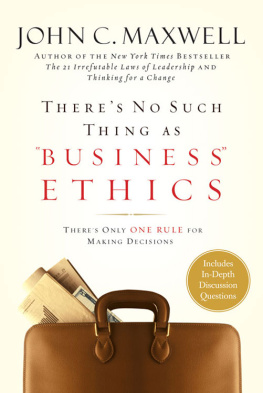
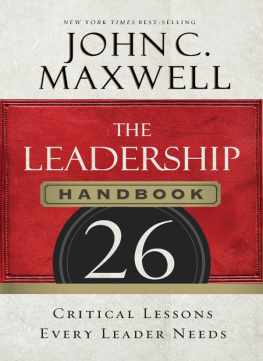
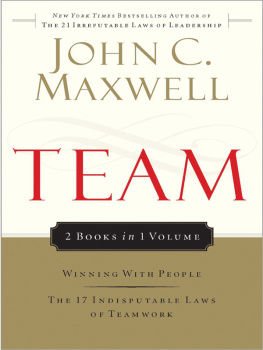
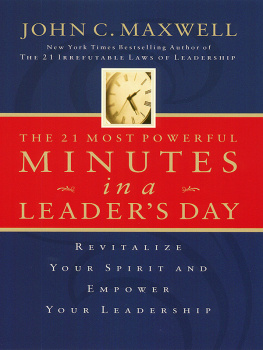
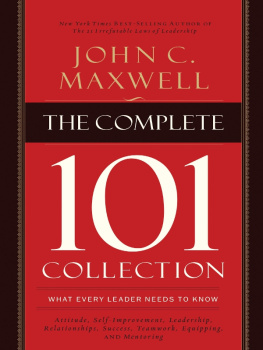
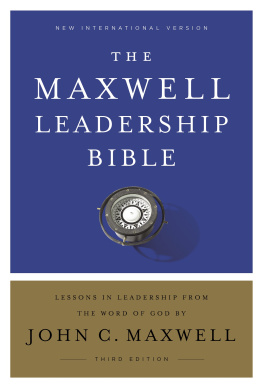
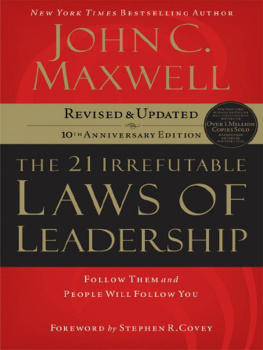
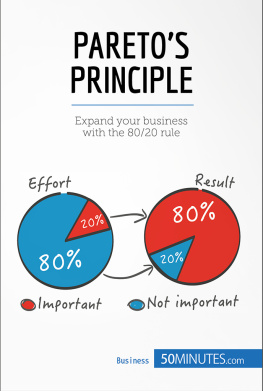
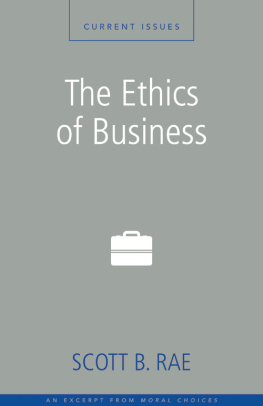


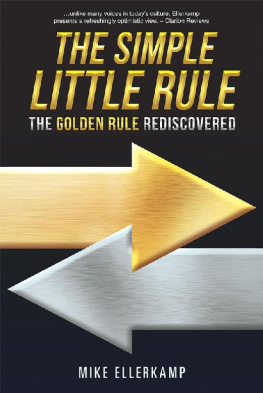
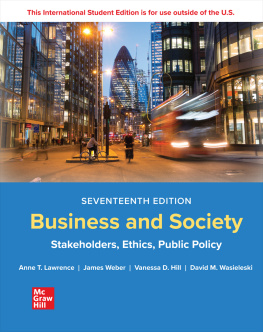
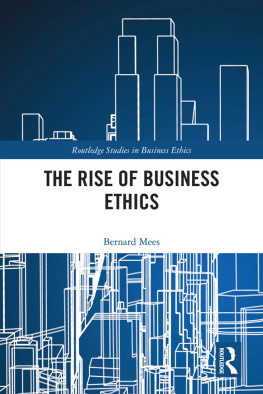
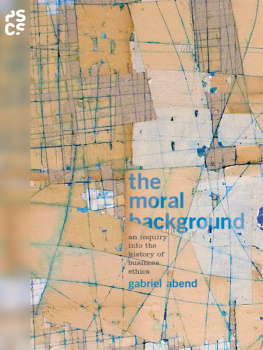
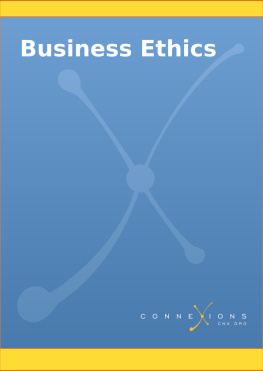
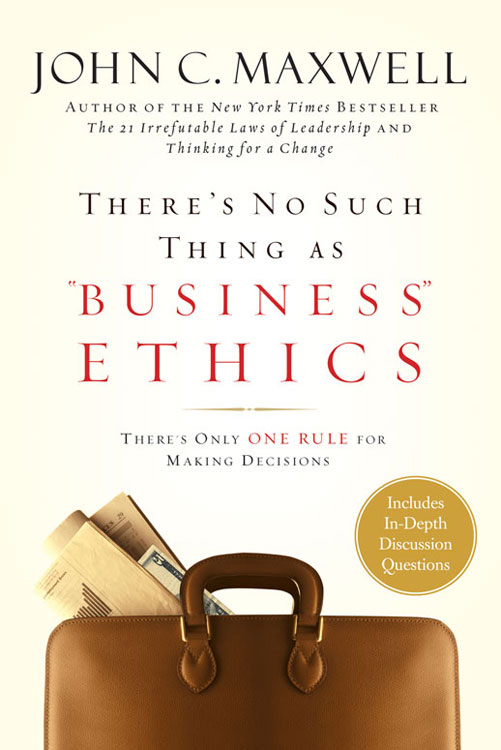
 A Division of AOL Time Warner Book Group
A Division of AOL Time Warner Book Group